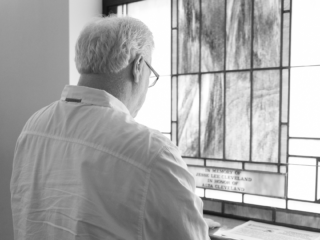In business, they call it a “pivot.” It’s the moment when the business opportunity, product line, or market changes and if the company is to stay vital or even survive, they have to change their product or the way they deliver their product. If the business can’t complete the pivot, they go out of business. When I was growing up, Christmas started when the Sears and Roebuck’s catalog came in the mail. Every kid I knew showed their parents what they wanted for Christmas by tearing out pages from the catalog. Now, Sears is out of business because Amazon radically restructured the retail experience through direct sales. Get on the internet. Place your order and Amazon brings it to your door.
For years, we were told we had to make an appointment to go see the doctor. Talking to your doctor over the phone wasn’t considered to be “good medical practice.” Then, the pandemic hit, and guess what? Every doctor has discovered “telemedicine.” Now, talking on the phone is just fine. Sure, the phone has a monitor attached to it, but practicing medicine outside of the office is not only acceptable but preferable. It’s now “good medical practice.”
Everything we do has changed. We don’t use our phones the way we once did. Our phones used to hang on the walls of our homes. Now, they’re always with us and have become the center of our lives. We don’t bank the way we once did. When was the last time you heard anyone complain about having to stand in line at the bank? These days, we do all our banking online. Groceries are delivered to our home. We work from home.
Everything has changed and yes, the way we do church has changed as well.
And yes, that means the church has to pivot. We have to rethink and restructure how we carry out our mission to change our world. Change is always hard, and there are enough horror stories about leading change in the local church to highlight a thousand Halloweens. Yet, change is a constant reality in our world and if our churches don’t change, they will die.
For a church to change, however, the pastor has to change first. The pastor has to understand and move to the desired future before the church can get there. No pastor I know likes online church. All of us think that there is something vital about being present in church with our brothers and sisters. Guess what? On any given Sunday, half of your listening congregation will be online. So, what does the pastor do? Do we continue to complain that our people aren’t coming, or do we figure out how to engage our people online? After all, that’s the opportunity they are giving us. Do we start here, or do we miss the moment?
Should you establish a social media presence? I’m well aware of the dangers of social media and the pitfalls that can derail a ministry that is engaged in the social media sphere. But again, where else can you engage a couple of thousand people with the good news of Jesus? Can you adapt your sermons to reach a congregation where Google tells us the average adult attention span is about 8 seconds? No, you can no longer preach like Spurgeon or Wesley or even Billy Graham. They were preaching to different people in a different setting.
Things have changed and our churches have to change to meet the new challenge. Pastors have to change first.
Too many pastors I know have developed their ministries within an established group of practices and habits that haven’t changed in the last twenty years. They still preach the same way. They structure their churches the same way. If you visited their churches in the seventies, you would see the exact same church in 2022. If our churches are going to change to meet new challenges, our pastors have to learn new skills.
Today’s pastor has to be able to write and think about some of life’s most difficult challenges. Therefore the pastor has to be reading and discussing the major works of the day — from philosophy to sexuality, identity, economics, and ethics. The trick questions I was asked in my ethics class — you know the ones that brought into conflict three or four foundational beliefs? Well, my people are now living with those questions.
Our calling isn’t just to walk with people when they have a death in their family. Our calling is to walk with people who are being challenged to live faithfully in a world that, in every practical appearance, seems to be out to get them. Our world isn’t simple anymore. Questions of values and ethics, morals and priorities are difficult to answer and challenging to live in. Every Sunday, our people are listening to our sermons to find something that helps them make sense of their world.
Our people are living in a different world. They need something different, something richer, from their churches and their pastors.
So, the question is simple: Are we the pastors that our churches need us to be? After all, if the church is to change, the pastor has to change first.









